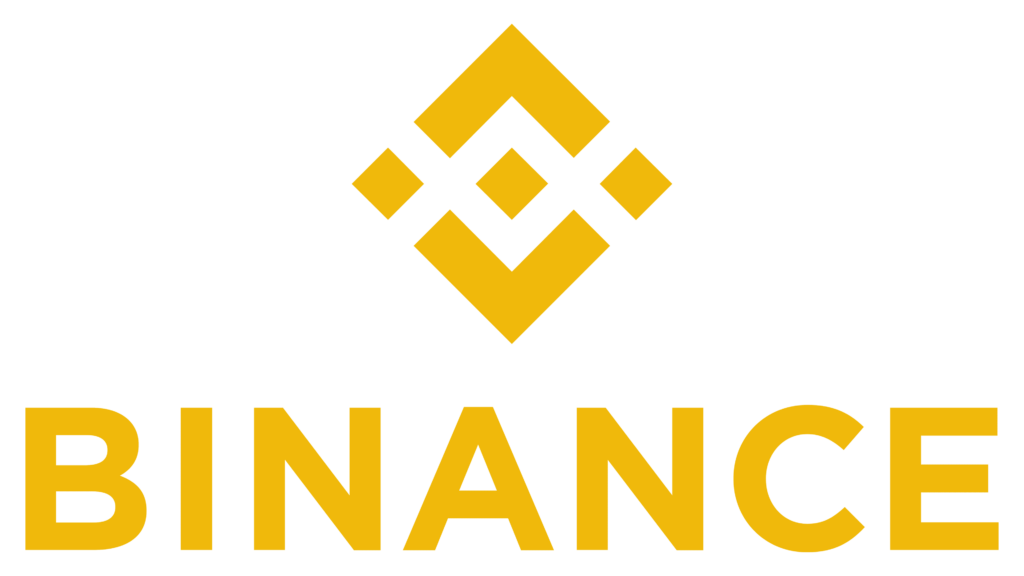What is Bitcoin?
Bitcoin is a decentralized digital currency that was created in 2009 by an anonymous individual or group using the pseudonym Satoshi Nakamoto. It’s a type of cryptocurrency, which means that it uses cryptography to secure and verify transactions as well as to control the creation of new units. Unlike traditional currencies, Bitcoin is not backed by any government or financial institution, and its value is determined solely by market demand and supply.
Why was Bitcoin created?
The main reason Bitcoin was created was to provide an alternative to traditional currencies and payment systems that are controlled by governments and financial institutions. Bitcoin was designed to be a peer-to-peer system that allows people to send and receive payments without the need for intermediaries like banks or payment processors. This means that transactions can be faster, cheaper, and more secure than traditional payment methods.

How does Bitcoin work?
Bitcoin works by using a decentralized public ledger called the blockchain. The blockchain is a distributed database that stores all Bitcoin transactions that have ever occurred. When a new transaction is made, it is broadcast to the network of Bitcoin users, who use their computing power to verify the transaction and add it to the blockchain. This verification process, called mining, involves solving complex mathematical problems, and miners are rewarded with new Bitcoins for their efforts.
How is Bitcoin regulated?
Bitcoin falls under various regulatory frameworks around the world. In some countries, it is completely legal and unregulated, while in others, it is heavily regulated or outright banned. In the United States, for example, Bitcoin is classified as a commodity and falls under the jurisdiction of the Commodity Futures Trading Commission (CFTC). It is also subject to tax laws, and profits from Bitcoin trading or investment are subject to capital gains tax.
Investment tips for Bitcoin
There are many experts who offer tips and advice on investing in Bitcoin, but it’s important to remember that Bitcoin is a highly volatile and speculative investment. Its value can fluctuate wildly in short periods of time, and there is no guarantee of returns. Some experts recommend that people invest only what they can afford to lose, and diversify their investment portfolio to mitigate risk.
In conclusion, whether or not someone should invest in Bitcoin is a decision that depends on their individual circumstances and risk tolerance. While Bitcoin offers the potential for high returns, it also comes with high risks. It’s important to do thorough research and seek advice from experts before making any investment decisions.
Who is Satoshi Nakamoto?
Satoshi Nakamoto is the pseudonym used by the creator or creators of Bitcoin. The true identity of Satoshi Nakamoto remains a mystery to this day, and despite numerous attempts to unmask the individual or group behind the pseudonym, their identity has never been conclusively revealed.
Satoshi Nakamoto first introduced the concept of Bitcoin in a white paper published in 2008, which proposed a decentralized digital currency that would allow for peer-to-peer transactions without the need for intermediaries. The paper described a system that used cryptography to secure transactions and a decentralized ledger, called the blockchain, to record and verify them.
In January 2009, Satoshi Nakamoto released the first version of the Bitcoin software, and the network went live a few days later. They remained an active participant in the Bitcoin community for the next two years, contributing to the development of the software and engaging in discussions with other users.
In April 2011, Satoshi Nakamoto sent an email to one of the Bitcoin developers announcing that they had “moved on to other things” and were no longer involved in the project. Since then, they have not been heard from or seen in public, and their true identity remains a mystery.
Many people have attempted to unmask Satoshi Nakamoto over the years, and there have been numerous theories and investigations into their true identity. Some people have claimed to be Satoshi Nakamoto, but none of these claims have been verified, and the true identity of the creator of Bitcoin remains one of the biggest mysteries in the world of technology and finance.
How many bitcoins are there?
Bitcoin’s total supply refers to the maximum number of Bitcoins that will ever exist. This number is set at 21 million, which means that there will only ever be 21 million Bitcoins in circulation. This limit is hard-coded into the Bitcoin protocol and is designed to prevent inflation and ensure the scarcity of the currency.
Currently, there are around 18.6 million Bitcoins in circulation, which means that around 2.4 million Bitcoins have yet to be mined. New Bitcoins are created through a process called mining, which involves solving complex mathematical problems and adding new transactions to the blockchain. Miners are rewarded with newly created Bitcoins for their efforts, and this is how new coins are introduced into the system.
The hash rate, on the other hand, refers to the computing power used to secure the Bitcoin network. The hash rate is a measure of the number of calculations that the Bitcoin network is performing per second in order to maintain the integrity of the blockchain. The hash rate is an important metric because it determines the security and efficiency of the network.
As of February 2023, the current hash rate of the Bitcoin network is around 180 exahashes per second (EH/s). This means that the network is performing around 180 quintillion calculations per second to secure the blockchain. The hash rate can vary depending on factors such as the number of miners on the network, the price of Bitcoin, and the difficulty of the mining process.
In summary, Bitcoin’s total supply is set at 21 million, with around 18.6 million Bitcoins currently in circulation. The hash rate is a measure of the computing power used to secure the Bitcoin network, and it currently stands at around 180 exahashes per second.
How does Bitcoin mining work?
Bitcoin mining is the process of adding new transactions to the blockchain and verifying their validity through a complex and resource-intensive calculation known as a proof-of-work algorithm. Bitcoin mining is essential for the functioning of the network, as it ensures that all transactions are valid and that no double-spending or other forms of fraud can occur.
Here’s a step-by-step breakdown of how Bitcoin mining works:
- Transactions are broadcast to the Bitcoin network: Whenever a new transaction is made on the Bitcoin network, it is broadcast to all other nodes in the network.
- Miners collect transactions into blocks: Miners collect these transactions and group them into blocks. Each block can contain a maximum of 1 megabyte of data.
- Miners compete to solve a complex mathematical problem: Once a block has been assembled, miners compete to solve a complex mathematical problem known as the proof-of-work algorithm. This algorithm requires a significant amount of computing power to solve, and miners use specialized hardware called ASICs (Application-Specific Integrated Circuits) to perform the calculations.
- The first miner to solve the problem broadcasts the block to the network: The first miner to solve the proof-of-work algorithm broadcasts the newly minted block to the rest of the network.
- Other nodes in the network validate the block: Other nodes in the network verify that the block is valid and that the transactions it contains are legitimate. This validation process involves checking the digital signatures of the transactions and making sure that the sender has enough funds to complete the transaction.
- The miner who solved the problem is rewarded with newly created Bitcoins: Once a block has been validated, the miner who solved the proof-of-work algorithm is rewarded with a fixed amount of newly created Bitcoins, as well as any transaction fees associated with the transactions in the block.
- The process repeats for each new block: The process of mining a new block and validating its transactions is repeated for every subsequent block in the blockchain. This ensures that all transactions on the network are validated and secure.
In summary, Bitcoin mining is the process of adding new transactions to the blockchain and verifying their validity through a complex and resource-intensive calculation. Miners compete to solve a proof-of-work algorithm, and the first miner to solve the problem is rewarded with newly created Bitcoins and transaction fees. This process is essential for the functioning and security of the Bitcoin network.
Where to buy Bitcoin?
There are many exchanges where you can buy Bitcoin and other cryptocurrencies. Here are some of the most popular exchanges:
- Coinbase: Coinbase is one of the largest and most popular cryptocurrency exchanges in the world. It offers a user-friendly interface and a wide range of cryptocurrencies to buy, sell, and trade, including Bitcoin.
- Etoro – With eToro, you can instantly purchase and trade more than 55 cryptocurrencies using a bank transfer, debit card, credit card, PayPal, Neteller, or Skrill.
- Binance: Binance is another popular cryptocurrency exchange that offers a wide range of trading pairs and a user-friendly interface. It is known for its low fees and high trading volume.
- Kraken: Kraken is a well-established exchange that offers a wide range of cryptocurrencies, including Bitcoin. It is known for its security and compliance with regulatory requirements.
- Bitstamp: Bitstamp is a European exchange that has been operating since 2011. It offers a variety of trading pairs, including Bitcoin, and is known for its security and reliability.
- Gemini: Gemini is a regulated exchange that is known for its high level of security and compliance with regulatory requirements. It offers a limited selection of cryptocurrencies, including Bitcoin.
- Coinmama: Coinmama is a user-friendly exchange that allows users to buy Bitcoin and other cryptocurrencies using a credit or debit card. It is known for its fast and reliable service.
- Bitfinex: Bitfinex is a popular exchange that offers a wide range of trading pairs, including Bitcoin. It is known for its advanced trading tools and high liquidity.
It’s important to do your own research and choose an exchange that is trustworthy and reliable. It’s also a good idea to compare fees and trading volumes to find an exchange that best fits your needs.
Where to store your Bitcoin?
There are many wallets available for storing Bitcoin, each with its own features, security measures, and user interfaces. Here are some of the most popular Bitcoin wallets:
- Ledger Nano S: The Ledger Nano S is a hardware wallet that is known for its security and ease of use. It stores your private keys offline and requires a physical button press to confirm transactions.
- Trezor: The Trezor is another popular hardware wallet that stores your private keys offline and offers a user-friendly interface. It is also known for its security features and compatibility with multiple cryptocurrencies.
- Exodus: Exodus is a desktop wallet that supports a wide range of cryptocurrencies, including Bitcoin. It offers a user-friendly interface and allows you to manage your portfolio with ease.
- Electrum: Electrum is a desktop wallet that is known for its security and customization options. It allows you to set your transaction fees manually and offers advanced features for experienced users.
- Mycelium: Mycelium is a mobile wallet that is available for Android and iOS. It offers a user-friendly interface and allows you to manage your Bitcoin and other cryptocurrencies on the go.
- Coinbase Wallet: Coinbase Wallet is a mobile wallet that allows you to store your Bitcoin and other cryptocurrencies in a secure and easy-to-use app. It also offers support for decentralized applications and allows you to interact with the blockchain directly.
It’s important to choose a wallet that is secure, reliable, and compatible with your needs. Make sure to do your own research and compare the features and security measures of different wallets before choosing one to store your Bitcoin.
Which celebrities are invested in Bitcoin?
Bitcoin has attracted the attention of many well-known people, including entrepreneurs, investors, politicians, and celebrities. Here are some examples of well-known people who have been talking about Bitcoin:
- Elon Musk: Elon Musk, the CEO of Tesla and SpaceX, has been known to tweet about Bitcoin and other cryptocurrencies. In the past, he has expressed support for Bitcoin and called it a “good thing” on social media, but he has also been critical of the energy consumption required for Bitcoin mining.
- Jack Dorsey: Jack Dorsey, the CEO of Twitter and Square, has been a vocal supporter of Bitcoin and has expressed his belief that it has the potential to become the world’s “single currency.” Square has also invested in Bitcoin and has added support for Bitcoin transactions to its payment processing system.
- Michael Saylor: Michael Saylor, the CEO of MicroStrategy, has become one of the most prominent advocates for Bitcoin in the business world. His company has invested over $3 billion in Bitcoin, and he has spoken extensively about the potential of Bitcoin as a store of value and a hedge against inflation.
- Mark Cuban: Mark Cuban, a billionaire entrepreneur and investor, has expressed his belief that Bitcoin has the potential to disrupt traditional finance and become a viable alternative to gold. He has also invested in Bitcoin and other cryptocurrencies.
- Janet Yellen: Janet Yellen, the current United States Secretary of the Treasury, has expressed concern about the use of Bitcoin for illicit activities and has called for greater regulation of the cryptocurrency. However, she has also acknowledged that Bitcoin and other cryptocurrencies could have potential benefits.
- Tom Brady: Tom Brady, the NFL quarterback and seven-time Super Bowl champion, has recently announced that he is “definitely” interested in learning more about Bitcoin and other cryptocurrencies.
These are just a few examples of the many well-known people who have been talking about Bitcoin. Bitcoin has attracted the attention of people from a wide range of backgrounds, and its popularity continues to grow as more people become interested in the potential of cryptocurrencies.







